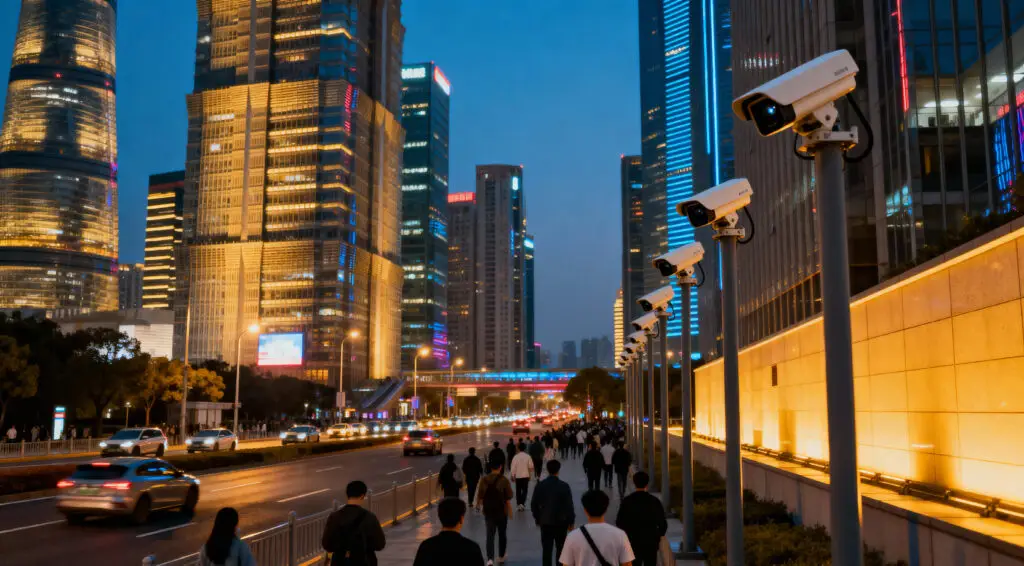Massive Expansion Of Surveillance Program
Hong Kong’s government has announced plans to install tens of thousands of surveillance cameras across the city. The initiative aims to boost crime prevention capabilities and support national security objectives. By 2028, the number of cameras will increase from 4,000 to 60,000 units. This expansion represents one of the most ambitious surveillance programs outside mainland China.

AI Facial Recognition At The Core
Authorities intend to integrate AI-powered facial recognition into the new camera network. This technology will allow law enforcement to track suspects in real time across public spaces. Officials argue this enhances police effectiveness and supports faster criminal investigations. However, critics warn of potential abuse and widespread surveillance of ordinary citizens.
Government Justifies Surveillance Measures
Security Chief Chris Tang stated that advanced monitoring systems are essential for modern law enforcement operations. He emphasized that technology would be applied carefully to balance security and resource allocation. The government argues the program is necessary to combat organized crime and terrorism. Officials maintain that privacy safeguards will be considered during implementation.
Recommended Article: African Safari Manhunt Contest Redefines Modern Dating With Bold Adventure
Privacy And Oversight Concerns Emerge
Privacy advocates question whether Hong Kong’s legal framework adequately protects citizens from surveillance overreach. Critics highlight the absence of transparent regulations governing facial recognition technology use. Concerns include potential misuse, lack of oversight, and insufficient independent review mechanisms. These issues echo similar debates in other countries adopting advanced surveillance.
Comparison To Global Surveillance Practices
Hong Kong’s approach mirrors surveillance strategies widely implemented in mainland China’s urban centers. AI-powered facial recognition is increasingly used worldwide, including in the United Kingdom for policing. However, the European Union has adopted stricter limits on real-time biometric monitoring in public areas. The contrast underscores different global approaches to balancing security and privacy.
Legal And Regulatory Gaps Persist
Experts argue that Hong Kong lacks a clear regulatory framework for AI surveillance deployment. Eric Lai of Georgetown Center for Asian Law emphasized the risk of unchecked police powers. He warned that without independent oversight, surveillance could infringe on human rights. These legal gaps raise questions about accountability and misuse prevention.
Future Implications For Society
The planned surveillance expansion could reshape Hong Kong’s social dynamics significantly. Increased monitoring may deter crime but could also chill free expression and public assembly. The integration of advanced AI tools accelerates debates about privacy in technologically advanced societies. How Hong Kong manages these changes will influence broader global discussions on surveillance governance.























